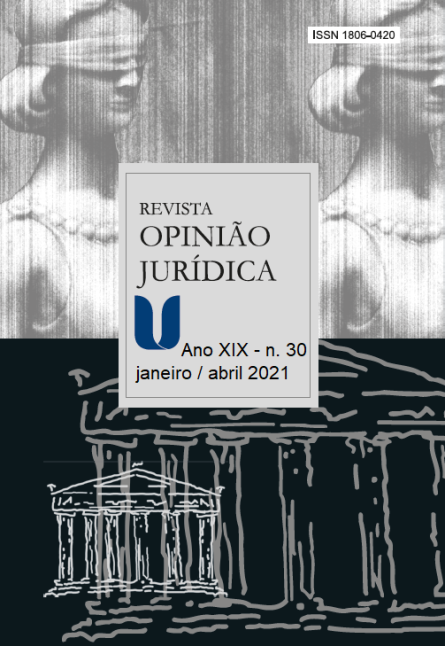CROSSROADS OF LEGAL THOUGHT IN THE INFORMATION SOCIETY
DOI:
https://doi.org/10.12662/2447-6641oj.v19i30.p196-209.2021Keywords:
Philosophical and methodological currents of Law, Jusnaturalism, Juspositivism, Topical, Dogmatic, Normativism, Judicialism, Neoconstitutionalism, Legal psychologyAbstract
Objective: Think about the place and the role, in all its "circumstance", of Law and Jurists in the society in which we live, the so-called "information society".
Methodology: It started with a reflection on the “state of the art” of philosophical and methodological currents and then arrived at less theoretical elements in general and more focused on law in action. It was an essentially philosophical methodology to follow.
Results: Although, in the "information society" in which we live, the philosophical and methodological theories in law end up being either dethroned by pure and simple technicality, which dispenses with them, or by superficial epitomes, there are still those who resist this research and teaching. This article seeks to establish the "state of the art" in relation to the different currents of thought in Philosophy and Methodology of Law, from the juspositivist / jusnaturalist dichotomous pair, to the normativism / judicialism dichotomous pair, passing through systematic / dogmatic thinking vs. topical / problematic thinking. However, this differentiation network is not enough. Binary oppositions overlap and imbricate. And, above all, there is the search for Justice, or, on the contrary, a routine and conformed application of what some believe to be the positive right of a hard lex, sed lex. In addition to thinking, so is practice. In addition to the right in the books, the right in action. The theory can undoubtedly be the foundation of this theory, but it is also the legal form of lawyers. Which, regardless of the personality of each jurist, also benefits from being generally formed by legal education, right from the Universities.
Contributions: The article comes to conclusions that are so original that the contributions, referred to throughout the text and notes, are essentially adjuvant and referring to specific argumentative or heuristic aspects.
Published
How to Cite
Issue
Section
License
CESSION OF COPYRIGHTS
The submission of articles to analysis for publication on Opinião Jurídica implies the author(s) transfers copyrights to Centro Universitário Christus – UNICHRISTUS for reproduction, publicizing, distribution, printing and publication, according to the Publication Norm 414R, Opin. Jur., Fortaleza, year 12, n. 16, p.1-414, Jan./Dec. 2014, costs to be bore by UNICHRISTUS, in whatever format or means that may or shall exist, in accordance to articles 49 and following of Federal Law 9.610/98.
1. In ceding copyrights, the author(s) agrees to do so in exclusivity, free of charge and for the totality of the work.
2. UNICHRISTUS may make the work, in its entirety or in parts, available for scholarly purposes, without altering its contents, except for small corrections that are deemed necessary.
3. The cession of copyrights is valid in all countries and for versions of the material in its original language or translated into a foreign language.
RESPONSIBILITY FOR THE CONTENT
By submitting an article, the author(s) declare to have sole responsibility for the content of the piece and is(are), therefore, responsible for any judicial or extrajudicial measures referring to it.
1. In case of joint authorship, all authors are considered collectively responsible, except when proved otherwise.


















